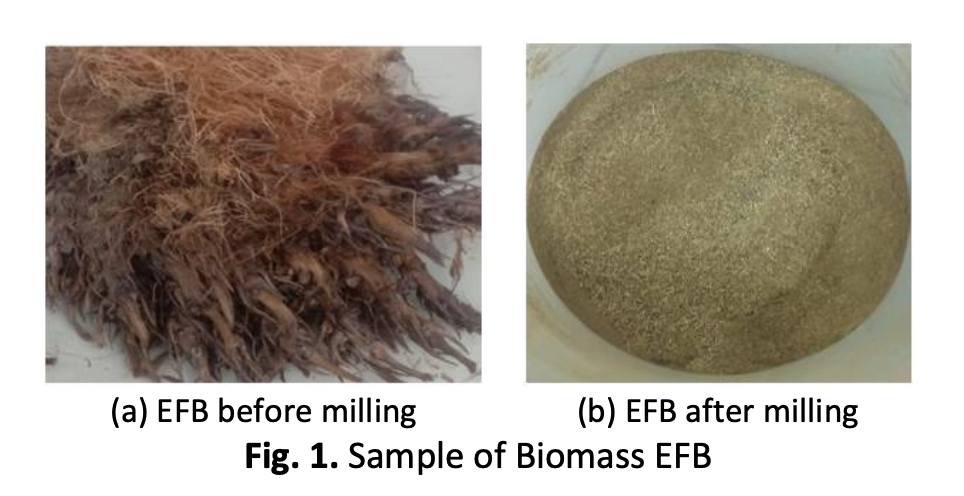The Effect of Pressure and Heating on Biocoke Fuel from Empty Fruit Bunches
DOI:
https://doi.org/10.37934/arfmts.114.1.159165Keywords:
Biocoke, pressure, heating, empty fruit bunches, energy alternativeAbstract
Bio-coke, derived from renewable biomass sources has gained significant interest as a sustainable alternative to conventional fossil fuels. Understanding the influence of pressure and heating on bio-coke properties and combustion characteristics is crucial for optimizing its production and utilization. This study investigates the impact of pressure and heating on the biocoke fuel obtained from empty fruit bunches of biomass waste. Biomass waste, a byproduct of the palm oil industry, offers a potential feedstock for biocoke production, thus addressing waste management and promoting circular economy principles. The experimental approach involved subjecting biomass waste to different pressure levels and heating conditions during biocoke production. The results show that applying pressure during the biocoke production can reduce the water content significantly. The carbon content recorded in biocoke reached 45.87% compared to 43.70% in raw EFB. The proximate and ultimate analysis results show that biocoke fuel shows better results. Thus, biocoke produced using EFB biomass waste is very suitable as an alternative energy to reduce dependence on fossil energy.
Downloads

































